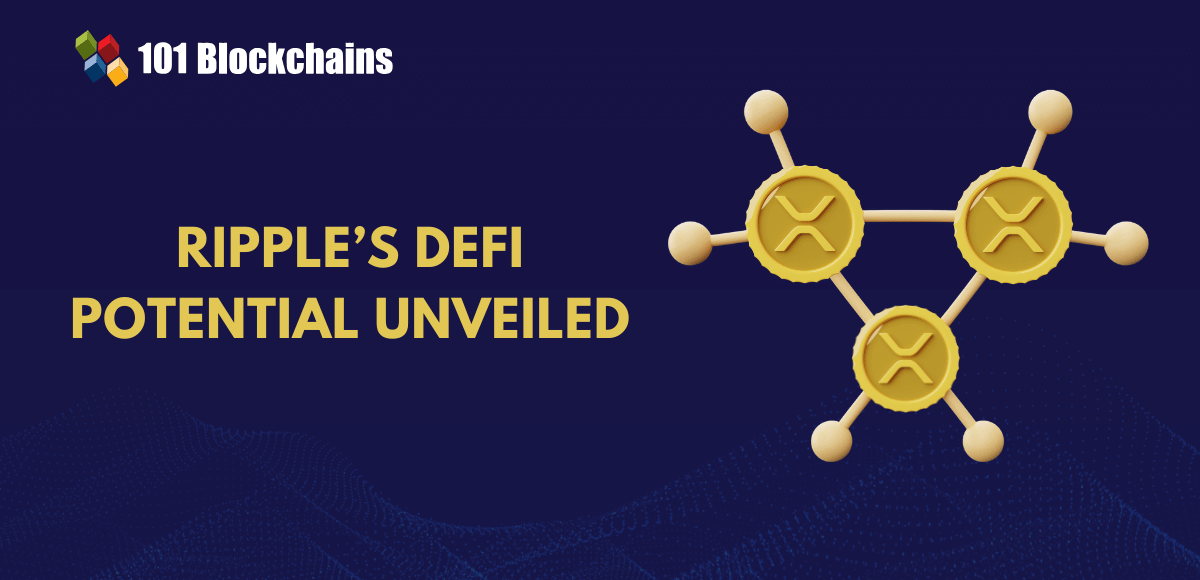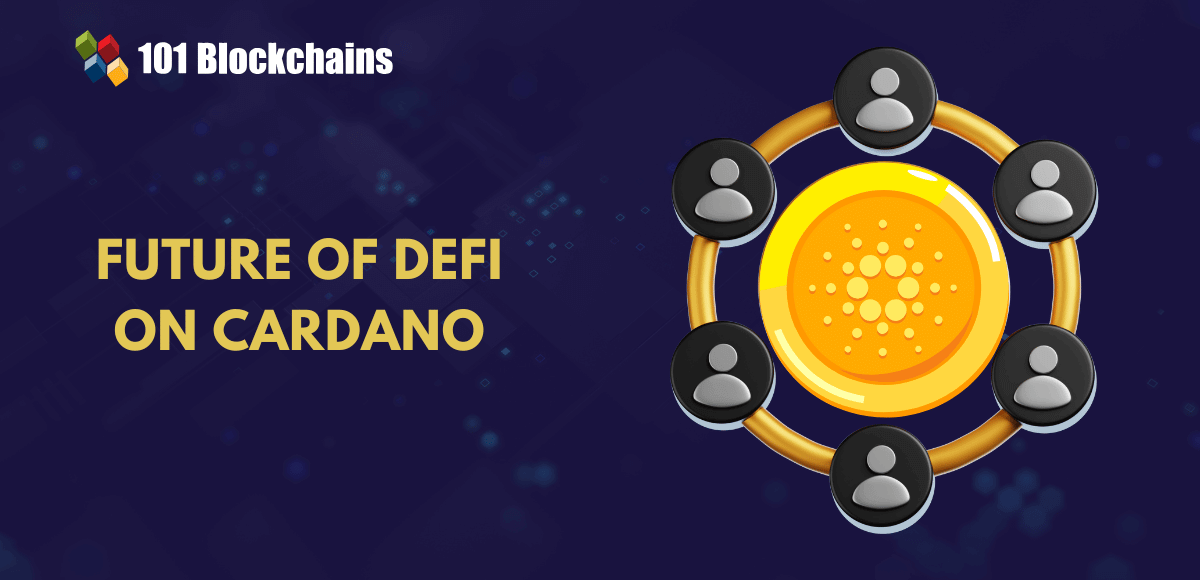Learn how blockchain truly works, master key definitions, and uncover what makes smart contracts so "smart." Dive into the fundamentals, gain valuable insights, and start your blockchain journey today!
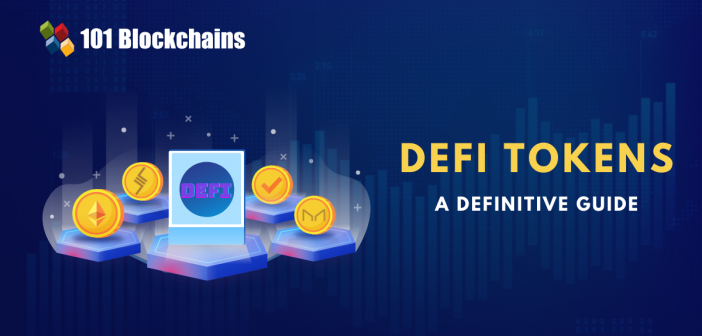
- Decentralized Finance
101 Blockchains
- on June 18, 2021
DeFi Tokens – A Complete Guide
This article takes a deeper dive into the fundamentals of DeFi Tokens — including the definition, examples, and applications.
The world has been witnessing many advancements in the field of finance since the introduction of blockchain. Cryptocurrencies changed the way people, enterprises, banks, and governments perceived money. DeFi is doing the same right now with its formidable interventions in the global financial landscape, making news in the last few years. Many people are looking up ‘DeFi tokens’ to find out whether they are different than cryptocurrencies.
The popularity of decentralized finance of DeFi in the crypto markets has created a lot of interest in such tokens. In the most basic sense, decentralized finance implies the use of smart contracts for transforming conventional financial applications. The following discussion helps you understand the fundamentals of DeFi and DeFi tokens, along with a reflection on the best DeFi tokens to invest in.
Want to know more about DeFi? Enroll Now: Introduction to DeFi Course
Understanding the Basics of DeFi
One of the first things that you should know before learning about DeFi tokens price and trends is the definition of DeFi. Decentralized Finance or DeFi is a notable sector in the cryptocurrency domain with rapid growth prospects. In addition, it is also crucial for revolutionizing the future of finance with innovative functionalities. For example, DeFi can transform the conventional perspectives on financial services, even including loans. Despite being new, the DeFi landscape is showcasing prolific growth in recent times.
In the most basic terms, DeFi implies an ecosystem stuffed with various financial applications developed on blockchain networks. As it is clearly evident, DeFi stands for Decentralized Finance, drawing from the decentralization aspect of blockchain. DeFi crypto space primarily relies on the fact that blockchain helps in storing a record of transactions without control of a single, centralized source. The most popular blockchain platform preferred for building DeFi applications is Ethereum. The smart contract functionalities of Ethereum make it an ideal option for building DeFi applications.
Want to explore in-depth about DeFi protocol and its use cases? Enroll in Decentralized Finance (Defi) Course- Intermediate Level Now!
Basic Objective of DeFi
The main objective of DeFi tokens and DeFi in general aims at the creation of a transparent and open-source financial service ecosystem. The different theoretical and practical perspectives on DeFi imply the accessibility of DeFi for any individual. Interestingly, DeFi also enables the lack of intervention by any centralized authority. The majority of the existing DeFi products and solutions focus on,
- Decentralized exchanges
- Decentralized marketplaces
- Banking services
- Custodial services
- Borrowing and lending applications
- Investment services
DeFi applications are unique on the grounds of responsive smart contract functionalities. Many DeFi applications rely on smart contracts for specifying details regarding relationships among entities involved in a contract. A smart contract leverages computer code that can help in enforcing the terms of the contract. As a result, DeFi coins could get the benefits of automation alongside reliable execution of different business processes.
Build your identity as a certified blockchain expert with 101 Blockchains’ Blockchain Certifications designed to provide enhanced career prospects.
Benefits of DeFi
The benefits of DeFi also showcase the actual factors which create interest in decentralized finance tokens. Here are the critical value advantages of decentralized finance.
- DeFi enables accessibility. With more than 1.7 billion people all over the world without access to financial services, DeFi can change financial inclusion.
- DeFi also offers the benefit of interoperability, thereby creating prolific demand for DeFi tokens. Interoperability with DeFi can help in creating new DeFi markets, services, and solutions.
- DeFi applications do not involve any massive cost burden for operations and maintenance. The limited need to depend on intermediaries can also ensure that DeFi applications can resolve conflicts efficiently.
DeFi Tokens
Now that you know about the different advantages of DeFi and its significance, it is reasonable to wonder about the definition of DeFi tokens. The tokens can be considered as decentralized financial applications operating on blockchain networks by replicating critical concepts used in traditional finance and banking applications.
Just like common blockchain projects, decentralized finance platforms feature their own token. Many token distribution frameworks have emerged over the years, with the most recent example pointing at Simple Agreement for Future Governance. The Simple Agreement for Future Governance or SAFG came in May 2020.
SAFG is a basic token distribution mechanism. It enables rewards of a specific amount of tokens for actors participating in a particular action. Users could leverage their token rewards for exerting their vote for future modifications. In such cases, the tokens are generally non-transferable and do not have any economic value.
On the other hand, you don’t have to worry about DeFi tokens price as they are associated with financial value. DeFi platforms offering exchange and lending services will have tokens with a certain financial value. Users could receive incentives for using the native token of the platform with a lower interest rate or receiving free tokens for particular actions.
The key idea which underlines the foundation for decentralized finance tokens is the recreation of financial services. Although decentralized finance tokens have a better potential for improving yields, they are high-risk investments. The pricing is subject to extreme volatility and is one of the prominent setbacks with DeFi token.
Start learning Decentralized Finance (DeFi) with World’s first DeFi Skill Path with quality resources tailored by industry experts Now!
Demand for DeFi Tokens
DeFi services disrupted the field of finance just like cryptocurrencies back in 2017. The total value in DeFi projects has increased to almost $6.9 billion from $2.1 million in a gap of three years from 2017 to 2020. As a result, the market capitalization for DeFi tokens has increased profoundly. All the tradable tokens used for DeFi applications can reach almost $15 billion. Many tokens have also shown prolific growth in market value by around three to four times annually.
The search for the best DeFi tokens to invest in also depends on factors driving their demand. The regulatory vacuum has prompted the growth of DeFi. For example, DeFi runs on mutual trust and standards for protecting privacy. Lenders don’t have to know the identities of borrowers or evaluate their ability to repay the debt. People are embracing such a change, and strides in regulatory approval for DeFi applications are driving adoption.
The next reason for the growing demand for DeFi tokens points towards the increased involvement of mainstream players. Many of the top financial institutions are starting to recognize DeFi alongside looking out for ways for participation. Notable asset management funds have started to follow DeFi with serious commitment. One of the world’s biggest crypto investment funds, Grayscale, has more than $5.2 billion worth of crypto assets in the earlier part of 2020.
Check out our ON-DEMAND WEBINAR on DeFi And The Future Of Finance
Popular DeFi Tokens
The arrival of so many DeFi platforms has definitely caused an upsurge of search queries like ‘what are the best DeFi tokens?’ with many promising answers. Multiple DeFi platforms obviously imply the existence of many DeFi tokens and the difficulty in making a suitable choice. So, let us take a look at the top alternatives among popular tokens in the DeFi space presently.
1. MKR
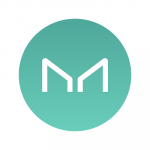
MKR is the DeFi token of MakerDAO, the popular DeFi application. MakerDAO offers a wide assortment of services to users with different names. The company offers decentralized lending services with their sub-company Oasis alongside its own stablecoin, Dai. MKR token holders have the responsibility of governance of Maker Protocol. The protocol involves modification of policies regarding Dai stablecoin, governance improvement, and selection of new collateral types.
Want to learn the basic and advanced concepts of Stablecoin? Enroll in our Stablecoin Fundamentals Course Now!
2. COMP
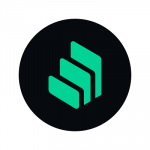
Comp is the DeFi token of Compound, another popular decentralized crypto lending platform. Comp is definitely one of the best entries in the DeFi crypto space for lending and borrowing assets. The supply and demand of crypto assets determine the interest rates, and the allocation of Comp to markets depends on the amount of interest. Furthermore, Comp is also significant for the governance of important protocol-related decisions.
3. Aave
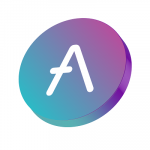
The name of Aave is also one of the top mentions when it comes to the answer of ‘what are the best DeFi tokens?’ among other alternatives. Aave is basically another DeFi lending platform, and it offers a native token, LEND. The native token helps holders in obtaining discounted fees with plans in the future for using it as a stake for governance. It might also serve as a unique first line of defense for all outstanding loans.
4. ALGO
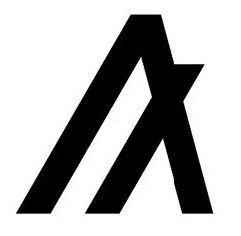
The ALGO DeFi token is the native token of Algorand, an Ethereum-based project for creating decentralized applications. Algorand is suitable for taking loans alongside facilitating decentralized trading and various other use cases. ALGO is suitable for rewarding network participants with verification privileges in the network.
5. ZRX
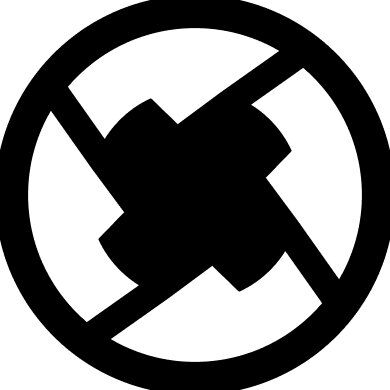
ZRX is also one of the popular DeFi tokens you should look out for. It is the native token of 0x, the permissionless liquidity protocol. 0x can bring liquidity provides on one page alongside developing new decentralized exchanges. The DeFi token ZRX is capable of serving a wide variety of use cases. For example, staking ZRX with market makers on 0x can help in earning rewards. Furthermore, ZRX also serves well for governance applications.
Want to explore an in-depth understanding of security threats in DeFi projects? Enroll in DeFi Security Fundamentals Course Now!
Final Words
On a final note, it is quite clear that DeFi tokens will make promising advancements in the future of finance. They can simplify the process of borrowing and lending. At the same time, DeFi token is also capable of driving motivation for users to participate in DeFi platforms. Most important of all, DeFi token can also serve as a gateway for encouraging the involvement of users in DeFi application governance.
The demand for decentralized finance is growing substantially, especially with the recent fluctuations in global economy and financial transactions worldwide. Enroll in the DeFi fundamentals course to learn more and explore the potential of DeFi and popular tokens to find out lucrative financial opportunities.
*Disclaimer: The article should not be taken as, and is not intended to provide any investment advice. Claims made in this article do not constitute investment advice and should not be taken as such. 101 Blockchains shall not be responsible for any loss sustained by any person who relies on this article. Do your own research!



![30+ Best Decentralized Finance Applications [Updated] best decentralized finance (DeFi) applications](https://101blockchains.com/wp-content/uploads/2020/10/decentralized-finance-applications.png)
